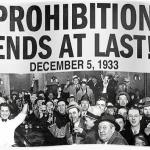Join Cameron English, Dr. Chuck Dinerstein and Dr. Barbara Billauer on Episode 96 of the Science Dispatch podcast as they discuss:
public health
Join Cameron English and Dr. Chuck Dinerstein on Episode 94 of the Science Dispatch podcast as they discuss:
Join Cameron English and Dr. Chuck Dinerstein on Episode 93 of the Science Dispatch podcast as they discuss:
Looking for some good dinnertime conversation? Or perhaps it's your first online date, and there's an awkward silence. Need an icebreaker?
Join Cameron English and Dr. Chuck Dinerstein on Episode 90 of the Science Dispatch podcast as they discuss:
Join Cameron English and Dr. Chuck Dinerstein on Episode 89 of the Science Dispatch podcast as they discuss:
Join Cameron English and Dr. Chuck Dinerstein on Episode 86 of the Science Dispatch podcast as they discuss:
Join Cameron English and Dr. Chuck Dinerstein on Episode 81 of the Science Dispatch podcast as they discuss:
Join Cameron English and Dr. Chuck Dinerstein on Episode 76 of the Science Dispatch podcast as they discuss microplastics in your lungs:













